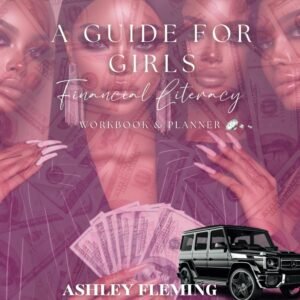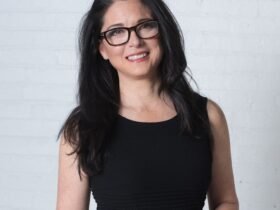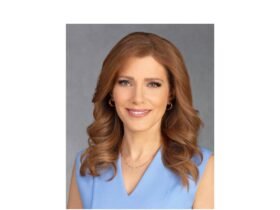Some of you may remember that last year I launched a project called DISABILIFINANCE. It was a training platform for financial professionals covering disability finance topics. Courses even earned you CFP Board CE’s!
The project’s been a little quiet as of late. That’s because I’ve been working behind the scenes to revamp things to make it more accessible to the general public rather than financial professionals alone.
So today I’m bringing you some big news:
- DISABILIFINANCE got a grant! And it could get you into classes for free.
- The programming is now open to the general public.
- A big, new goal to reach the millions of Americans that will be newly eligible for ABLE accounts in 2026.
Let’s get into it.
Who are DISABILIFINANCE’S courses best for?
DISABILIFINANCE courses are great for everyone! About 28.7% of the adult U.S. population self-reports having a disability. That means even if you don’t count yourself amongst those numbers, it’s highly likely that you know someone who does. Likely, even, that it’s someone you love.
That said, if you fall into one of the below categories, you’ll definitely want to check out DISABILIFINANCE programming:
- You’re disabled.
- Your child’s disabled.
- You are the caretaker of a disabled person.
- You work with disabled people in a professional capacity.
- You’re a veteran or work with veterans.
- You’re a personal finance journalist or content creator who wants to be more inclusive in your work. Remember, that number was 28.7% of the adult population. This applies to a larger sector of your audience than you may think!
Disability finance is nuanced and complex. The biggest reason for this is the need to interact with state programming, which often forces you into poverty whether you like it or not. Knowing how to manage and shelter any assets you have is important, and it’s not an intuitive process.
You also want to be mindful of things like estate planning, Medicaid payback provisions, better alternatives to guardianship and more.
1,000 New ABLE Account Holders
One of the ways to shelter savings from state and federal asset tests is an ABLE account. Currently, to open an ABLE account, you must be under age 26 at the time of onset of your disability.
But effective January 1, 2026?
That number bumps up to 46 rather than 26.
This change will make anywhere between 6 to 8 million people newly eligible for ABLE accounts. Among them are 1 million veterans.
To help raise awareness to this new group of ABLE-eligible Americans, DISABILIFINANCE is setting a goal to reach at least 1,000 of them in 2025.
(And yes, we have an ABLE-specific course available.)
Want to help us reach this goal? Share the website with a friend! Whether that’s on social media, through the DISABILIFINANCE Instagram account, or by good-old-fashioned text/word of mouth, you can help us spread the good news.
How to Get a Free Ticket Courtesy of The Plutus Foundation
I have even more great news. With the shift to bringing this financial literacy education to the general public, DISABILIFINANCE has generously been issued a scholarship grant from The Plutus Foundation.
Normally, classes are $10. We’re trying to keep the prices low in order to keep the content accessible. However, when you’re living in forced poverty or are battling the statistics when it comes to maternal income with a disability in the home, I know that sometimes even $10 can be cost-prohibitive.
That’s where this Plutus Foundation grant comes in. They’re covering class fees for 50 people. You might qualify for free access if you’re:
- Disabled.
- The parent of a disabled person.
- The caretaker of a disabled person.
To claim your free ticket, send an email to info@disabilifinance.com.
Do the courses still earn CFP Board CE’s?
Previously, DISABILFINANCE content was geared towards financial professionals rather than the public at large. We even applied to offer CFP Board CEs, and were approved in record time. It was kind of a big deal. If you participated last year, DISABILIFINANCE programming counted towards your professional certification hours.
Currently, though, these educational video sessions don’t earn you those CEs. Pretty much because maintaining that status was incredibly expensive, and we didn’t want those costs to prevent the amount of content we were able to bring you in the future.
That said, if there’s enough interest in reinstating those CE-granting powers, it’s something we could pursue again. If you have that interest, let us know at info@disabilifinance.com. If interest ever hits critical mass, you’ll be among the first to know.



















Leave a Reply